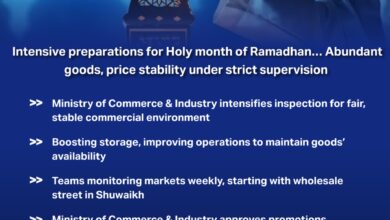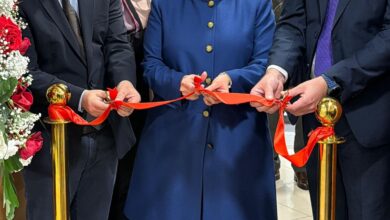Kuwait to fast-track tire disposal for revenue growth
His Highness Sheikh Ahmad Abdullah Al-Ahmad Al-Sabah, the Prime Minister, directed the necessary measures to address the issue of used tires by boosting revenue, setting up recycling plants, preserving the environment, and preventing land encroachments.

• The Council of Ministers reviewed Kuwait Cement Company’s plan to address Salmi’s tire accumulation by using three million tires annually as furnace fuel and implementing a 15-year waste management strategy.
The Council of Ministers has directed Kuwait Municipality to expedite the disposal of damaged and used tires in the Salmi area and other locations, aiming to maximize state revenues, reports Al Qabas newspaper.
In its meeting on methods for disposing of, treating, and utilizing damaged and consumed tires, the council was briefed on the recommendations outlined in the minutes of the Public Services Committee meeting held on October 20, 2024.
The committee reviewed a letter from the Municipality of Kuwait stating that the municipality does not manage used tires in terms of transportation, treatment, or backfilling, as these are classified as hazardous waste requiring specific handling methods based on their nature.
The municipality’s role is limited to assigning cleaning companies to transport some tires—illegally discarded or left unattended—to treatment sites located in the Salmiarea under the supervision of the Public Authority for Industry. Furthermore, the municipality has addressed the Fatwa and Legislation Department to identify the government entity that owns the damaged and used tires and the entity responsible for their disposal and processing.
Recycling of damaged and used tires
The council also reviewed a letter from the Kuwait Tire Recycling Factories Union, which outlined the federation’s requirements to implement its initiative for the removal, transportation, and recycling of damaged and used tires in the Salmi area.
The letter emphasized the readiness of factories to collaborate with the relevant authorities in removing encroachments at the environmental landfill and transferring tires—used as raw materials—to warehouses designated for each of the three factories in Salmi.
The Public Authority for Industry clarified that the Council of Ministers’ directive to the authority was limited to transporting tires from the Irhiya area, which the authority has fulfilled. The regulation of transporting newly consumed tires falls under the responsibility of the municipality, which must take necessary measures to organize the transportation of used, damaged, and consumed tires to the designated recycling site in the Salmi area.
Additionally, the Public Authority for Industry is not the entity responsible for transporting, supervising, or organizing tires, as this does not fall within its mandate under the Industry Law.
Ownership of damaged and used tires
The Council of Ministers reviewed a letter from the General Secretariat of the Council of Ministers, which included an attached letter from the Fatwa and Legislation Department outlining its opinion regarding the ownership of damaged and used tires in the Salmiarea and the entity responsible for their disposal and treatment. The opinion stated as follows:
- Responsibility for transportation: Damaged or spent car tires are classified as waste, and the municipality is responsible for transporting them to designated collection sites.
- Ownership of tires: The ownership of these tires is vested in the state, categorizing them as movable state-owned assets. The state may manage or dispose of them as it deems appropriate.
- Coordination for disposal: The disposal and treatment of damaged and consumed tires should be coordinated between the municipality, the PublicAuthority for Industry, and the Public Authority for the Environment. This coordination requires the issuance of a decision by the Council of Ministers to define and allocate responsibilities among these entities.
Addressing issue of accumulated used tires
The Council of Ministers also reviewed a letter from the municipality, which included correspondence from the Kuwait Cement Company regarding the company’s initiative to address the issue of accumulated used tires in the Salmi area.
The company proposed resolving the issue within three years by utilizing these tires as an alternative fuel source. Their plan involves cutting the tires and converting them into consumer fuel for the company’s furnaces, replacing fossil fuels, at an estimated rate of approximately threemillion tires annually.
Additionally, the company plans to prepare a long-term study to manage damaged and consumed tires that are received daily at tire collection sites, with a strategy spanning at least 15 years.
The council also reviewed a memorandum from the municipality’s Projects Sector dated October 17, 2024, which referenced a coordination meeting chaired by His Highness Sheikh Ahmad Abdullah Al-Ahmad Al-Sabah, the Prime Minister. The meeting included representatives from the Municipality, the Public Authority for Industry, the Public Authority for the Environment, and the Kuwait Cement Company.
During the meeting, His Highness directed, based on the opinion of the Fatwa and Legislation Department, to proceed with the necessary measures to address the issue of used tires in coordination with relevant authorities, which include:
- Enhancing the state’s sources of income and increasing its revenues.
- Establishing recycling plants to support the industrial sector.
- Preserving the environment through safe disposal methods.
- Preventing land encroachments caused by tire accumulation.
The council reviewed and acknowledged the legal opinion provided by the Fatwa and Legislation Department regarding the ownership of damaged and consumed tires in the Salmi area and the entity responsible for their disposal and treatment.
The responsibilities of the following government entities are distributed as follows:
- Kuwait Municipality: Responsible for managing and disposing of damaged and consumed tires discarded across the country, in a manner deemed appropriate to serve the public interest and increase state revenues. The municipality is also tasked with transporting these tires to designated collection sites, as well as disposing of and processing them efficiently.
- Public Authority for Industry: Responsible for issuing the necessary licenses for establishing industrial or artisanal facilities specialized in processing damaged and consumed tires.
- Environment Public Authority: Responsible for monitoring and coordinating with relevant authorities to ensure the proper disposal and processing of damaged and consumed tires, in compliance with applicable laws and procedures, while safeguarding the environment.
The Kuwait Municipality is assigned the following tasks:
- Expedited disposal: Swiftly dispose of the damaged and consumed tires currently located in the Salmi area and any other sites, to maximize the state’s revenues in accordance with its responsibilities outlined in item (ii) of this decision.
- Legal and procedural arrangements: Regularize all legal and procedural matters related to tire collection sites, in compliance with applicable regulations and provisions.
- Development of a sustainable plan: Coordinate with relevant authorities to develop a sustainable plan for managing damaged and consumed tires in the future. This plan should aim to maximize state revenues, utilize existing industrial facilities specialized in processing these tires, and submit a report to the Council of Ministers within two months from the date of this decision.











